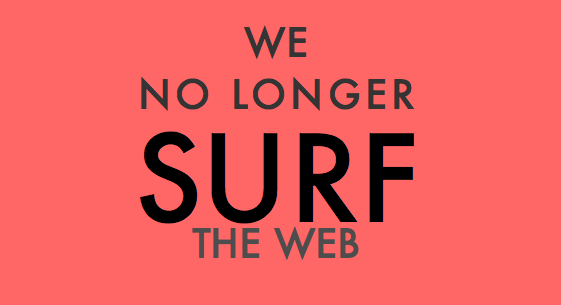The potential to influence and interact with people using social media is unlimited, yet the focus of many ministry’s online efforts is on presence and impressions.
Presence: “Having a website,” or for many it’s “having an iPhone app.”
Simply being online is no longer valuable when there are millions (billions) of web pages, Twitter, Google+ and Facebook accounts all publishing content every minute of every day.
 This concept is key. Facebook’s and Twitter’s newsfeeds in particular have flipped this idea of “surfing the web” on it’s head. Information comes to us, when we want it, from the people we trust.
This concept is key. Facebook’s and Twitter’s newsfeeds in particular have flipped this idea of “surfing the web” on it’s head. Information comes to us, when we want it, from the people we trust.
 Likes, RT’s, @ replies, comments on blogs and on Facebook and Google+ demonstrate the power of interacting and curating the content we see. Yet many ministries are still concerned about “being seen.” Without people interacting with the content you share the chances of being seen are small and becoming even smaller.
Likes, RT’s, @ replies, comments on blogs and on Facebook and Google+ demonstrate the power of interacting and curating the content we see. Yet many ministries are still concerned about “being seen.” Without people interacting with the content you share the chances of being seen are small and becoming even smaller.
Impressions: “Running Facebook ads = Effectiveness” idea.
Online ads are sophisticated and will allow you to choose granularly who “sees” the ad. But being seen is no longer the goal.
“Internet advertising is so cheap (particularly Facebook and run of site network buys) that just about anyone can afford a million impressions, and a billion isn’t out of reach.
Pretty soon it turns into noise. An infinite number of impressions is dangerously close to no impressions at all.”–Seth Godin
It’s not only noise, but that information is being displayed in the least valuable places online. Studies examining how people’s eyes interact with newsfeeds reveal that they rarely glance over to the ad section. Additionally many users install browser plugins that block ads altogether.
“Impressions don’t automatically get you permission. In fact, they might cost it.”–Godin
I like to think of permission as an opportunity to influence. It’s that rare experience where people actually stop (most of) what they are doing and consider your point of view. Ads are one part of the whole, and the least valuable in my opinion if you are talking about influence.
Most of the ads ministries run are about attending a meeting or event. To get someone to change the course of their day and attend something they have never or rarely been to is a serious commitment. Are ads really the best way to influence their behavior? Have you recently altered your schedule because of a Facebook ad?
I’d love to hear your thoughts on how you are working to influence others online outside of ads!
Images courtesy of Guerilla Marketing’s Slide Deck on Giving Substance to Online Influence.

Great post Brian. This is a really important discussion. You should post it in the Ministry Net group, and even use it in the next blogference
thanks karl! yes a blogference discussion would be a good next step.
We’re working hard to make http://facebook.com/cruconference a place of engagement and influence leading up to our conference. Also helping those who are coming use it as a tool to invite their buddies…i.e., making it easy for others to influence others.
first thing i saw was a large image on the page! so awesome.
We haven’t run an ad for over 3 years on Facebook because I’ve sensed the same thing – who is going to come to an even because of a random ad? And when you can get a prominent place on a news feed for free? It’s a no brainer.
No brilliant ideas outside of stuff you’ve already written about – using pictures, having 10 people like/comment on a post, tagging people in pictures. But now that I think about it – all those are just seeking to get views. Not interaction. Interesting.
I think Twitter is much easier to get interaction on – retweeting great articles, quotes, students’ thots.
it’s been humbling for me to think about how much of my mindset is still on getting people to look at something, not take action.
i would add instagram to places where interaction is meaningful–the middle adopters are just starting to join, and it’s not filled w tons of noise from everyone and their mom.